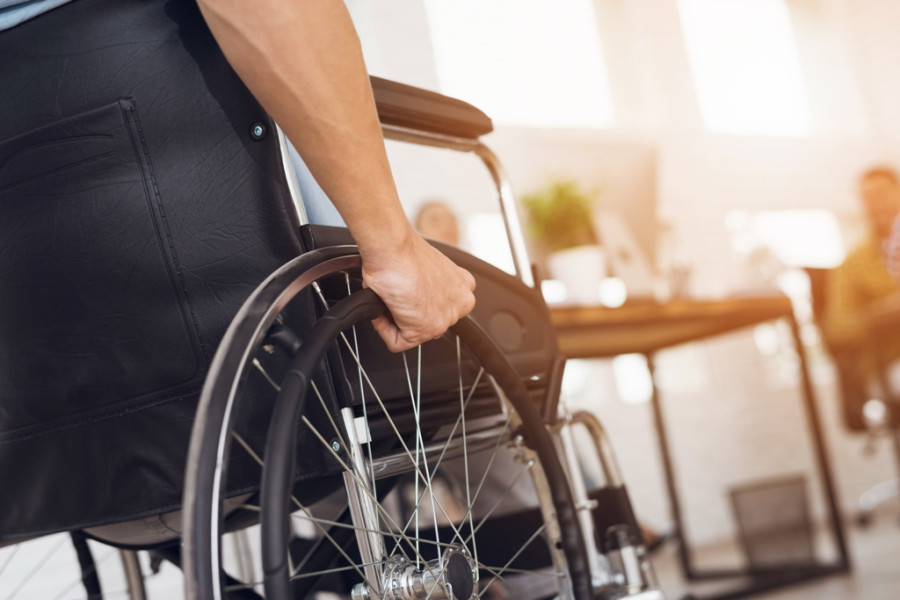National
People with disabilities who depend on daily income suffer due to nationwide lockdown
They don’t get relief from municipalities because they don’t have local IDs.
Anup Ojha
Every time the government announces an extension to the nationwide lockdown, 29-year-old Kapil BK’s worries deepen. The visually impaired man from Doti, lives with his son and mother.
“My wife, who is not blind, eloped with another man eight months ago leaving a four-year-old son with me,” said Kapil BK, 29, who is visually impaired. “My mother came from the village to look after him. I had been feeding them selling incense sticks door to door, but now I am confined into my cold and damp room,” said BK.
BK is not the only person with disabilities suffering due to the coronavirus lockdown, which has already been in force for 17 days. The 2011 census shows that around 23,549 people with disabilities live in Kathmandu. The National Federation of the Disabled estimates that 50 percent of them depend on their daily income to make their ends meet.
“I don’t have money. More than my life, I am concerned about my son,” said BK, 29, who lives in a rented room in Bhaktapur. “The municipality hasn’t given us anything, as they say aid is reserved only for people native to the area,” BK, who is surviving on flattened rice told the Post.
The story of Kusam Chaudhari, 26, and Nischal Magar, 27, both of whom are blind is similar. The residents of Dang, who now live in Kathmandu, tied the knot just a week before the nationwide lockdown.
“We are good singers, and we thought we could easily run our life singing on the road,” said the couple. But with the lockdown, they have run out of money to buy food. “The ward office has not given us a relief card, we have nothing to eat, except a sack of rice we received from the Nepal Blind Association two weeks ago.”
“It’s been two weeks we are eating salt rice without vegetables,”said Chaudhari.
She said her parents have been asking her to return home, but she can’t even do that due to the lockdown. “Life has become very stressful and complicated for us,” said Chaudhari.
Sudarsan Subedi, former president of the Federation, said the lockdown has hit disabled people who depend on their daily income hard.
“The disabled people have identity cards, but they are not issued from in the area where they reside,” said Subedi. “That is why they are not getting essential relief items from the local government,” said Subedi.
Devi Parajuli, a rehabilitation therapist for people with disabilities, said the lockdown and the fear of transmission of coronavirus have created immense anxiety and psychological problems among people with disabilities in the lower economic strata.
“People with disabilities have to depend upon others,” said Parajuli. “For example, blind people and people with hearing difficulties have to rely on others even for information on coronavirus,” said Parajuli.
She said that the society needs to do more to help people with disabilities who are bearing the brunt of the lockdown. “I request everyone to motivate and help the people living with any kind of disabilities, because they are suffering really hard,” said Parajuli.
Meanwhile, BK and his family chew the last remaining packet of flattened rice. They need to ration it so that they have at least something to eat tomorrow.




 18.12°C Kathmandu
18.12°C Kathmandu.jpg)














